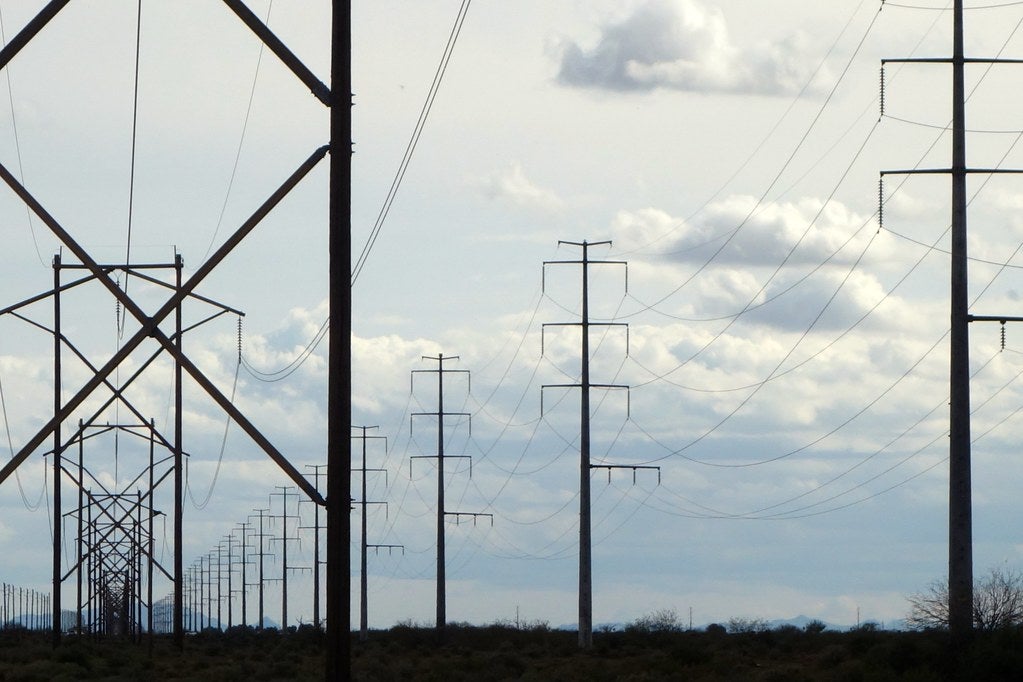WCP: Infrastructure “Deal”? No Deal for Workers and the Climate

Posted in News Working-Class Perspectives | Tagged Ken Estey
Last week, President Joe Biden announced that “We have a deal” on an infrastructure bill. In Working-Class Perspectives this week, Ken Estey argues that some groups got what they wanted in that deal, but others lost out. It isn’t just that workers and their families lost some key provisions. Cuts to funding for programs to address climate change will affect us all — and those cuts translate into fewer new jobs for the working class.
The long-awaited infrastructure bill is slowly coming into focus. Last Thursday, President Joe Biden stood alongside of Republicans and Democrats to announce that “We have a deal” — $579 billion in new federal spending for roads, broadband, electric utilities, and other infrastructure. Emphasizing the bipartisan compromise, Biden said, “I think it’s really important we’ve all agreed that none of us got all that we wanted.”
That’s for sure. Clearly some parties got more of what they wanted than others. When Biden announced his America Jobs Plan in March, it raised great hopes for many and concerns across the political spectrum. For instance, Republicans panned the proposal because it would reverse some provisions oftheir regressive 2017 tax package to create a fairer tax code. Business owners got what they wanted in the compromise. Instead of corporate tax increases or a wealth tax, the compromise will be funded by vastly overdue efforts to go after corporate tax evasion and high earner tax cheats. They should have been paying their share all along. And the mega-billionaires who avoid paying any income taxes at all whistle while they invest and go on their merry way.
Workers lost out on several counts. The original American Jobs Plan called for $2.3 trillion in spending across the economy to buoy spending on everything from highways, bridges, ports, and transit systems. The compromise version will fund some but not all of that.
Workers and their families also lost the $400 billion included in the original proposal to “solidify the infrastructure of our care economy.” The original proposal would have improved access to affordable home or community-based care for aging relatives and family members with disabilities. The plan also explicitly acknowledged how caregivers are disproportionately women of color and the lowest paid workers in the economy. Workers would have benefitted from new jobs, higher wages, stronger benefits, and the opportunity to join a union and bargain collectively. Their families would have benefitted from better quality of care. The compromise drops all of this.
Biden’s original proposal would have permanently linked infrastructure spending with climate change measures, but the compromise upends a carbon-free energy future – and the millions of working-class jobs that would have built it. The compromise bill is a smaller, more targeted infrastructure package than the original American Jobs Plan – a plan that the Sunrise Movement, a youth-led activist movement to stop climate change and create jobs, argued fell far short of the $10 trillion needed over the next decade to transform the economy and rescue the planet.
The proposal in the original American Jobs Plan also called for creating a very modest Civilian Climate Corps to encourage a “new, diverse generation of Americans to work conserving our public lands and waters, bolstering community resilience and advancing environmental justice.” According to Sunrise, the $10 billion originally proposed would provide just 10 to 20,000 jobs per year. By contrast, Roosevelt’s Civilian Conservation Corps employed 300,000 per year.
In April, Senator Ed Markey and Rep. Alexandria Ocasio-Cortez introduced a more expansive plan, the Civilian Climate Corps for Jobs and Justice Act, that would have employed 1.5 million Americans to work on “clean energy, climate resilience, environmental remediation, conservation, and sustainable infrastructure projects, while providing education, training, and career pathways in good union jobs.” It would cost $132 billion.
As Markey reminded listeners, the Green New Deal is not just a resolution but a revolution that would put “jobs, justice, and climate action central to our political system.” On June 28, a mobilization of activists from the Sunrise Movement will conduct a “large, escalated action” in Washington to protest the paltry sum in the bipartisan bill. They will urge a bold infrastructure package with a fully-funded Civilian Climate Corps.
Climate change is inherently a class matter. As we saw in Texas in February, the effects of climate change, even unexpected and devastating cold, are always disproportionately endured by those with the least capacity to escape or bounce back. Yet the working class also has the most to gain from measures to address climate change. A true win-win, well-paying secure jobs right now represent a profound investment dedicated to solving problems before they occur. The transfer of intergenerational resources is impossible if every generation is constantly rebuilding from the last climate disaster.
The original American Jobs Plan was already a disappointment for many who had hoped for a once in a lifetime opportunity to permanently link climate change prevention and mitigation with a new generation of jobs centered on the working class, funded by a fair tax system. However, it was a start in the right direction. Biden’s bipartisan package is clearly not a multi- generational victory for workers, the climate, or a country unraveled by decades of disinvestment. Neither changes in tax policies nor investments in caring for families nor climate change-related jobs survived bipartisanship. With this compromise, we are left with Biden’s hollow words that “It reflects consensus. The heart of democracy requires consensus.” If there is any consensus, it is driven by the interests of the ruling class, and the compromise bill represents one more example of union and movement proposals making it just far enough to Washington to die in the crossfire of a messy legislative process stacked against working-class interests. A worker-led, job-empowered, climate-safe future requires a different kind of consensus. And we are still fighting for that.
Ken Estey, Brooklyn College
